Filmmaker shines spotlight on Scotland's indyref
- Published
- comments
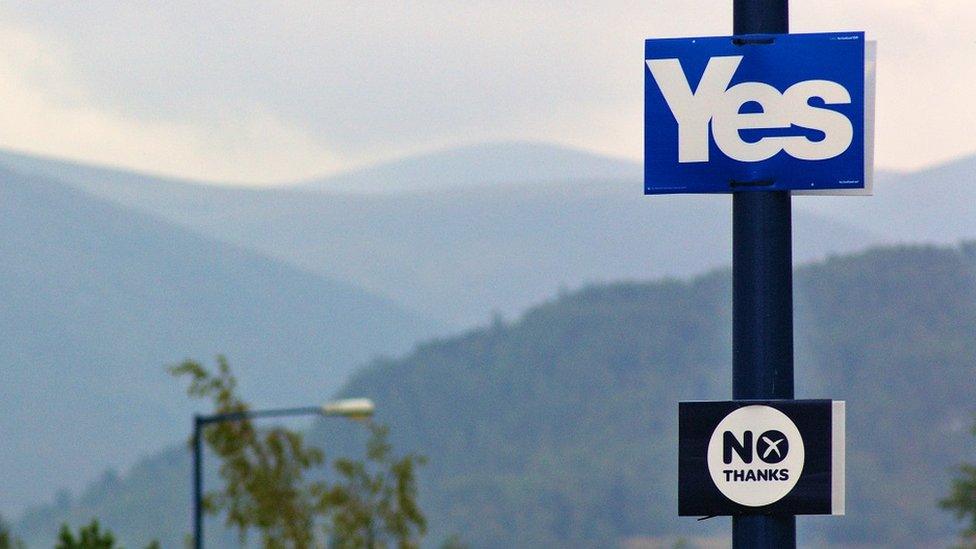
Scotland narrowly voted to remain part of the United Kingdom in the 2014 independence referendum
It was one of the most monumental events in recent Scottish history and it continues to influence political discussions across the country.
Now the Scottish independence referendum has become the focus of filmmaker Paul Mitchell.
He has interviewed some of the key players involved in the 2014 poll for his documentary Yes/No - Inside the IndyRef.
George Osborne, Nicola Sturgeon, Gordon Brown and Alex Salmond are among those who share their recollections of their roles in events.
The first episode of the three-part documentary examines the years up to the signing of the Edinburgh Agreement, the deal which set out the terms for a Scottish independence referendum.
Here are some of the things we learn from the programme.
Jim Murphy wanted an early referendum
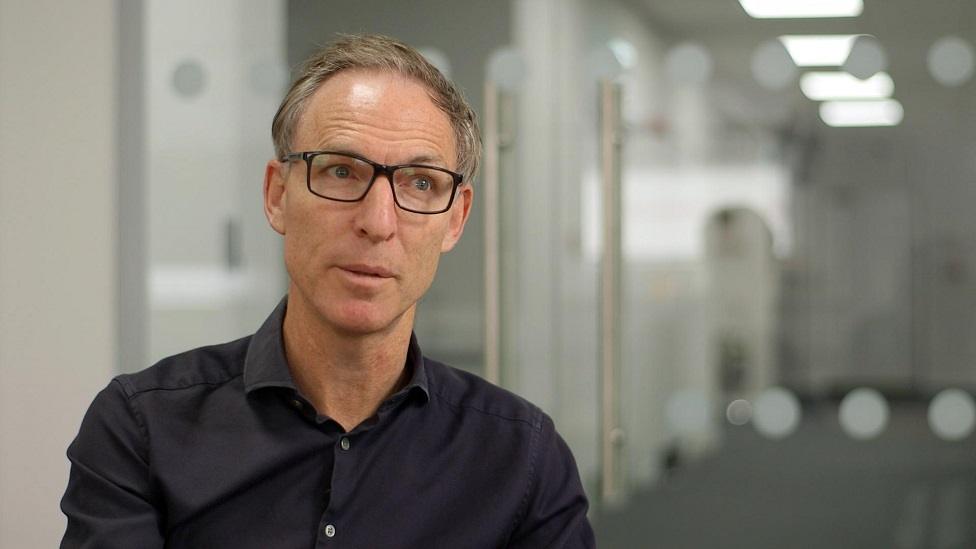
Jim Murphy was Labour's Scottish Secretary under Gordon Brown
When the SNP won enough votes to form a minority government at the Scottish Parliament in 2007, talk inevitably turned to an independence referendum.
First Minister Alex Salmond knew a vote was unlikely.
"It wasn't really going to be able to be possible to get an acceptable parliamentary bill for a referendum through that Scottish Parliament because it had a massive unionist majority," he told the documentary makers.
But the Labour Secretary of State for Scotland, Jim Murphy, was worried about the momentum of support behind the SNP and he wanted to call their bluff.
"These things are coming our way," he said. "And in politics when there's a fast-moving vehicle coming towards you, you can't just stand still. It will hit you."
The possibility of calling a referendum was raised in cabinet, with Mr Murphy arguing that the UK Labour government could "seize the initiative" and win an independence poll positively.
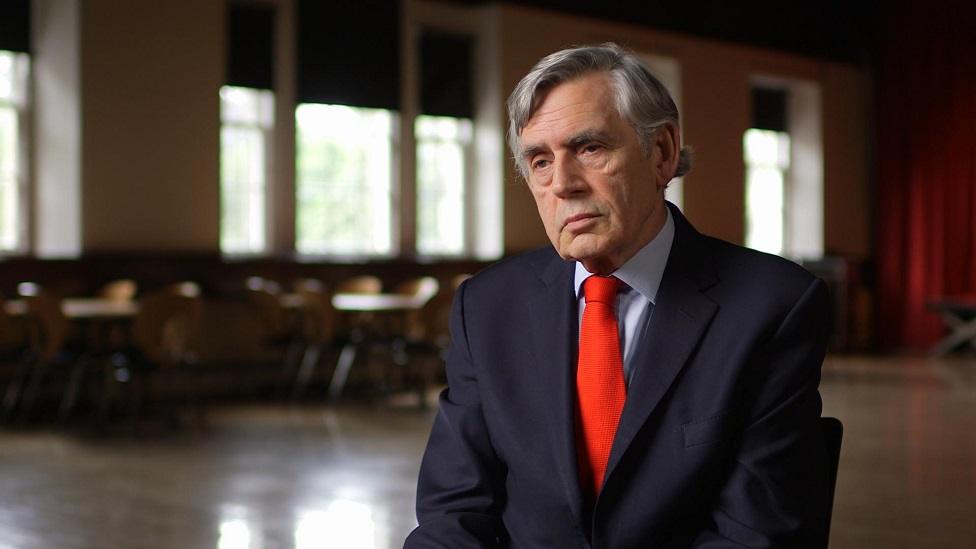
Gordon Brown ruled out holding an independence referendum during his tenure as prime minister
But Gordon Brown - then the prime minister - had more pressing issues to consider.
"I think it was difficult to have a referendum at a time of global financial crisis," he said. "We had a global financial crisis in 2008, 2009, 2010. And I think you must not assume that if you have an SNP administration you will inevitably have massive support for independence. In my view that was not inevitable."
George Osborne wanted to run the referendum from Westminster
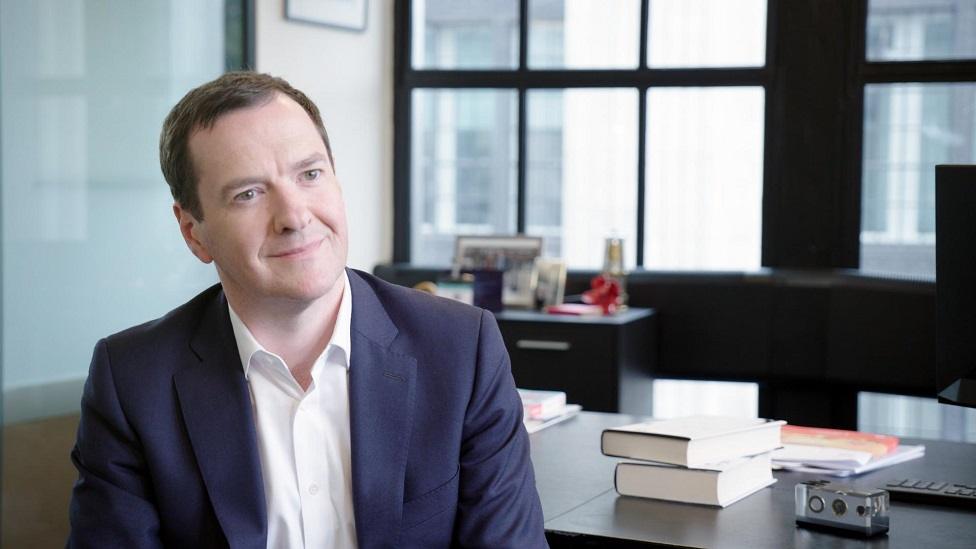
George Osborne was part of the coalition government when the SNP won a majority in Holyrood.
In 2011 the SNP won an unprecedented majority at Holyrood and the focus of the new coalition government at Westminster quickly shifted north.
For the first time Scotland was at the heart of the discussions of the "quad" - made up of two leading members of both the Conservatives and the Liberal Democrats - and they called in Michael Moore, the Lib Dem Scottish Secretary, for an emergency session.
Nick Clegg, who was then deputy prime minister said: "I remember George Osborne arrived late and said sort of half-seriously, half-jokingly, can't we just run the referendum from London? That's what they would do in Spain."
The programme suggests that the then-chancellor was hinting that Westminster should have control of the referendum process.
But, interviewed by the producers, Mr Osborne said: "For all the kind of joshing and joviality of a team that was working pretty closely together in coalition by that point, we were faced with a deadly serious question about the future of our country."
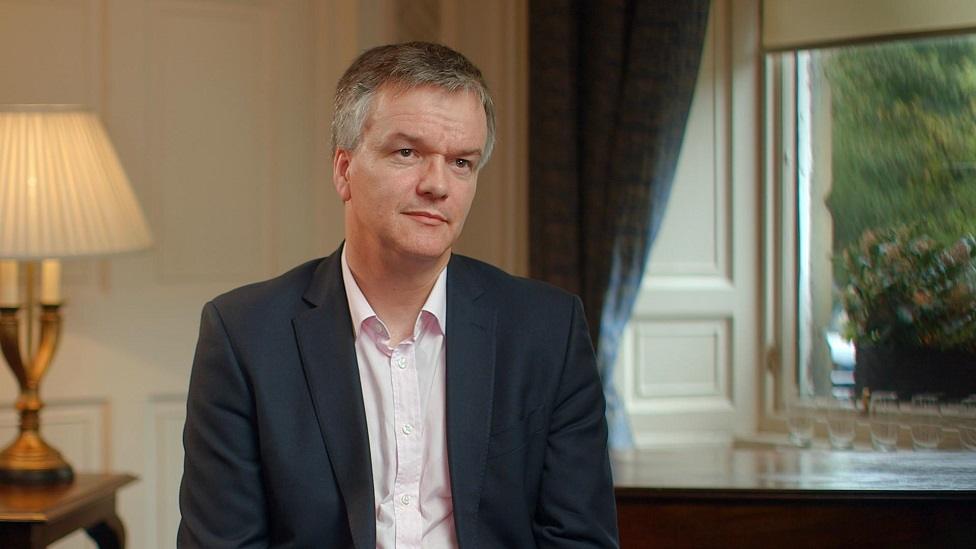
Former Lib Dem Scottish Secretary Michael Moore was called into an emergency meeting of the quad
Mr Moore has a different take. "However he meant it, it was considered - it took people like me and others to push back and say we will have to find a solution that is made in Scotland. If we don't, if we try and do it from London, we'll lose."
His former colleague, Nick Clegg, added: "We were firmly of the view that any approach to the referendum above and beyond anything else needed to avoid the trap of feeding the grievance narrative, the blame narrative, which the SNP and Alex Salmond were so successful at harvesting and deploying."
The devo-max question
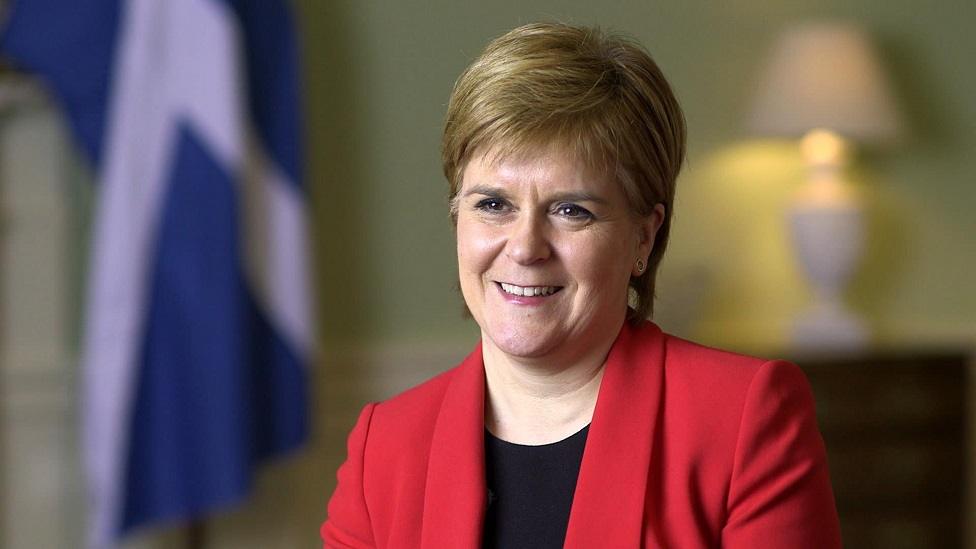
Nicola Sturgeon was a key figure in the Yes campaign
Polling suggested that a comfortable majority of Scottish voters would choose to remain part of the UK in a quick referendum.
It convinced David Cameron and George Osborne that Alex Salmond did not really want to put the independence question to the Scottish people.
Nicola Sturgeon told the documentary-makers that the Westminster politicians "never understood us".
"They have never got it, they have never really been able to come to terms with the fact that there's this thing that we actually believe in, and we've thought about it, and we believe in it because we think it's right for the country and we are prepared to take risks occasionally in pursuit of it," she said.
"They have never got that, and this idea that secretly we didn't want the referendum - I've spent all my life campaigning for this, we all have."
David Cameron was adamant that the referendum should ask a single yes/no question, despite some calls among the SNP for a third so-called "devo-max" option.
Nicola Sturgeon told the documentary that the party leaders were of the view that a single question was the best choice - but they used it as a negotiating tactic.
It was explained by Alex Salmond.
"If you want somebody in politics, particularly a powerful government, to do something they don't want to do then often what you have to do is present something that is even less palatable to them so that they can say it's not as bad as a three [question] referendum."
The first part of Yes/No - Inside the Indyref will be broadcast on BBC Scotland on Tuesday 5 March at 22:00. It will be available afterwards on the BBC iPlayer.